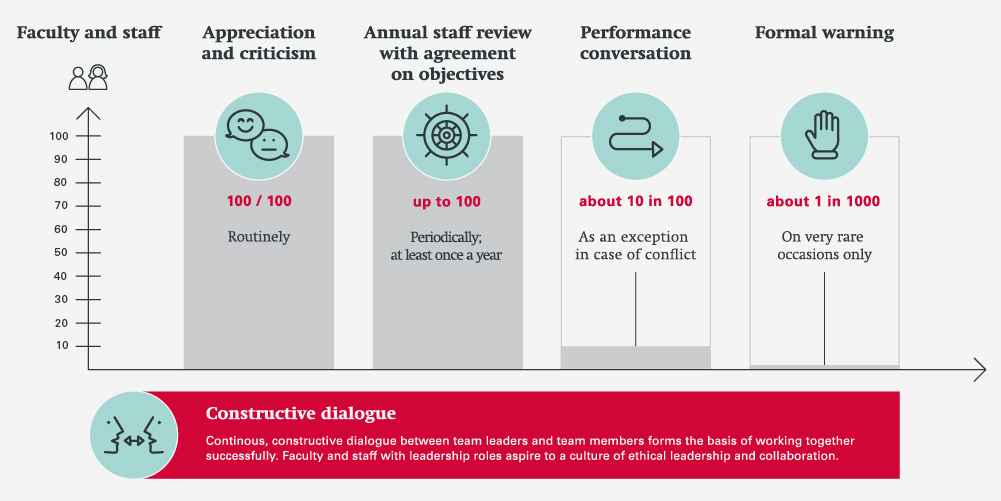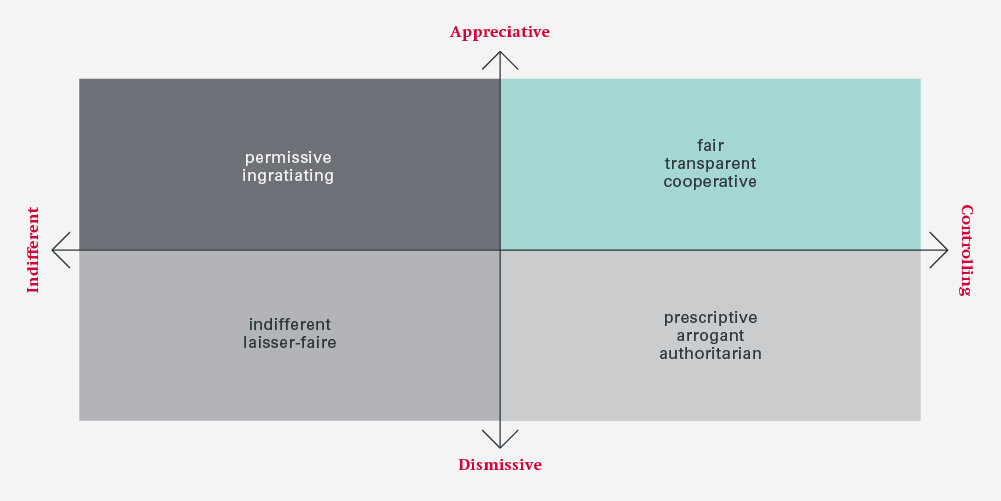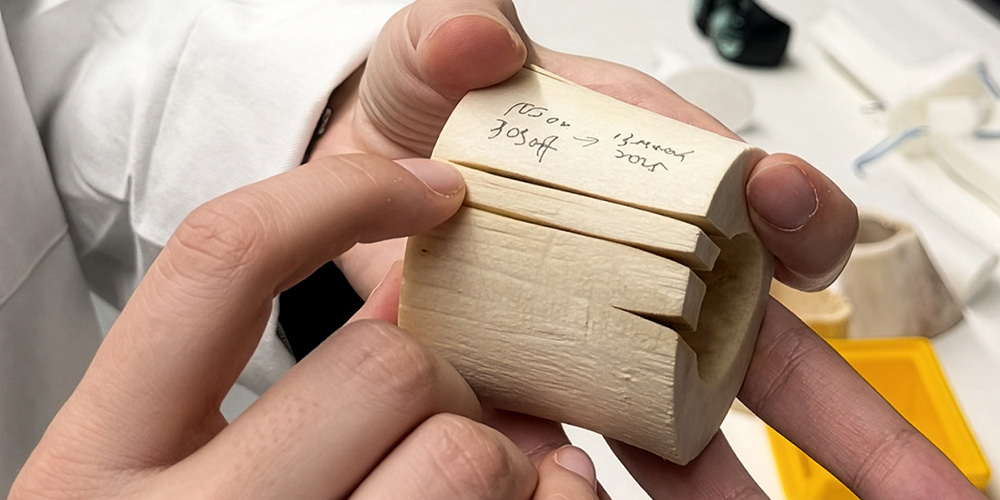Constructive Dialogue

Continuous dialogue between team leaders and team members forms the basis of working together successfully and leading fairly and transparently. Through dialogue, ongoing routines and future objectives are discussed and agreed upon.
On this website, you can find instructions to prepare, engage in, and document constructive dialogues.
Guiding principles
- University of Basel faculty and staff will maintain an appreciative dialogue between one another.
- Faculty and staff with leadership roles are responsible for the effective and sustained success of their unit and team members.
- Faculty and staff with leadership roles aspire to a fair, transparent, and cooperative leadership style. They maintain a dialogue with their team members on equal footing and guarantee the lasting success of their team or unit and the University of Basel as a whole.
Constructive dialogue
Prepare
-
Focus on the issue at hand
-
Refer to your own, first-hand observations
-
Describe your observations concisely and fairly
-
Use positive, respectful wording
One on one dialogue
-
Talk directly to the team member concerned
-
Discuss the issue confidentially – not in public, at a team meeting or on the lab floor.
Use concise wording
-
What, precisely have I observed?
-
Which aspect of this issue would I like to focus on?
-
Examples for useful wordings:
– «I have noticed that…».
– «I am glad …».
– «It is my concern that…».
Listen carefully
-
Allow the team member to illustrate his or her point of view.
-
Listen attentively to what the team member has to say and ask for clarifications.
-
If necessary, redirect the team member back to the issue at hand.
Focus on solutions
-
Do not dwell on shortcomings
-
Focus on the issue at hand
-
Team leader and team member collaborate on a positive outcome.
Any follow up necessary?
-
Who is responsible for setting the next steps in motion?
-
List the respective to-dos with a time frame.
-
Is there any extra support or particular tools necessary to work on the solution?
Document
-
Document any agreements made
-
Agreements are useful for further reference for both team member and team leader while working on a solution.



